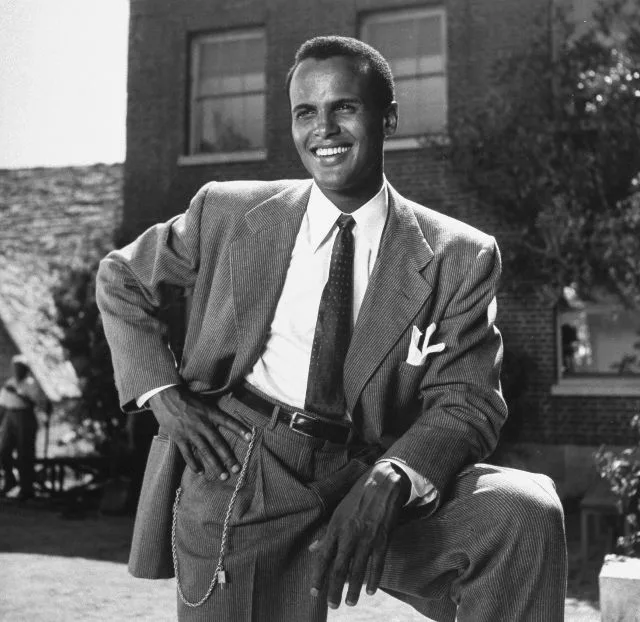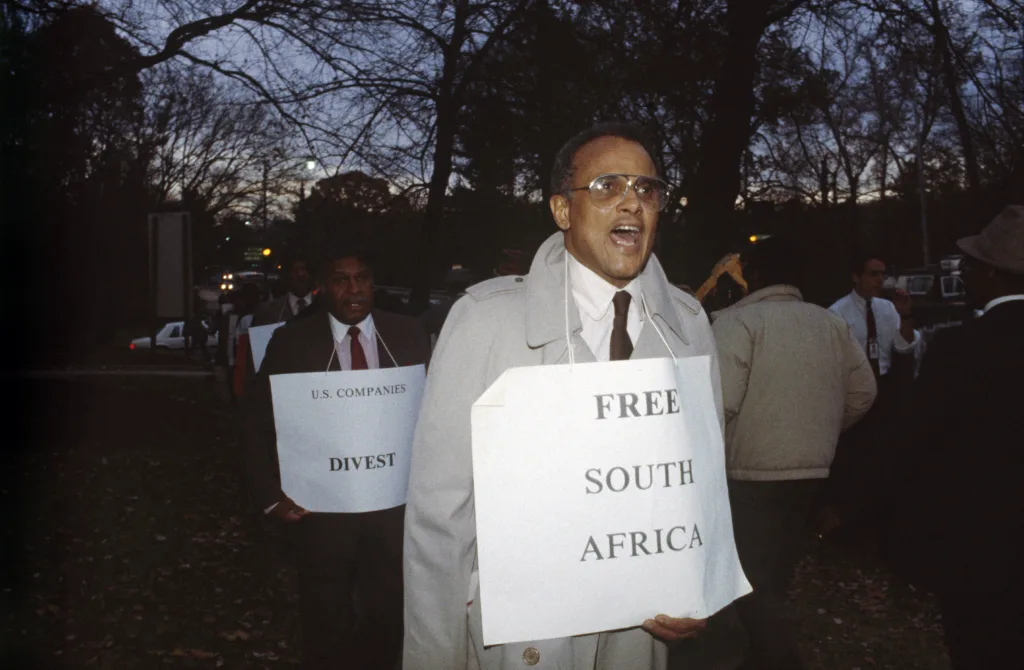
Harry Belafonte is a multifaceted personality and a cultural icon whose influence extends beyond music and film to activism and philanthropy. His remarkable career spans over seven decades, during which he has made invaluable contributions to the entertainment industry and the civil rights movement. Born on March 1, 1927, in Harlem, New York City, Harry Belafonte’s journey is a tale of perseverance, dedication, and resilience.
Early Childhood & Family Background
Harry Belafonte was born in Harlem, New York, to Caribbean immigrant parents Melvine Love and Harold George Bellanfanti. His mother was of mixed African and Scottish origin from Jamaica, while his father was of French and African descent from Martinique. Belafonte was the youngest of four children, and his parents divorced when he was a child.
Belafonte experienced various obstacles as a child growing up in Harlem, including poverty and prejudice. He went to George Washington High School, where he excelled as a student and athlete. He joined the United States Navy after graduation and participated in World War II. Belafonte was also a World War II soldier, a conflict that impacted many young African Americans who went on to become civil rights activists in the 1940s and 1950s.
Musical Career
Belafonte’s musical career began in the 1940s when he started performing in New York City’s jazz clubs. He was a member of the American Negro Theater and appeared in several productions. He published his debut record, “Mark Twain and Other Folk Favourites,” in 1954, which showed his distinct combination of African-American folk music and calypso. The album was a financial success, launching Belafonte’s music career.

Calypso, Belafonte’s debut record album, sold more than a million copies in 1956, making it the first album in history to do so. It held the number-one spot for an astonishing 31 weeks. “The Banana Boat Song” was Belafonte’s most recognized song from that album. The song, which includes the catchy chorus “Day-O,” quickly became a classic and is still popular today. Other popular songs by Belafonte include “Jump in the Line” and “Island in the Sun.” He has released over 30 albums throughout his career and has sold more than 100 million records worldwide.
Film Career
In the 1950s, Belafonte made his cinematic debut in the film adaptation of “Carmen Jones.” He later appeared in films such as “Island in the Sun” and “The World, the Flesh, and the Devil.” Belafonte was one of the first Black actors to portray starring parts in Hollywood films, and he utilized his position to advocate for racial and social justice concerns.
Net Worth
Harry Belafonte’s net worth was estimated to be around $28 million. He accumulated his wealth through his successful career as a singer, actor, and producer. Belafonte was one of the first Black performers to achieve widespread success in the entertainment industry, and his influence on popular culture has been significant. Harry Belafonte has owned several homes throughout his life, including a 3,400-square-foot home in New York’s Upper West Side that he sold for $2.5 million in 2021. He also owned a 4-bedroom, 4-bathroom villa in Beverly Hills, which he sold for $2.2 million in 2019.

Politics & Activism
Belafonte has spent his whole life fighting for civil rights and social justice. He was Dr. Martin Luther King Jr.’s close friend and partner, and he played an important role in the civil rights struggle. He was an important fundraiser for the organization and helped organize the 1963 March on Washington. During the tumultuous years of the civil rights fight in the South, Belafonte not only committed time and money to the campaign but also sparked interest in Africa. Belafonte financed a trip to West Africa for SNCC leaders Fannie Lou Hamer, John Lewis, Julian Bond, and others in 1964.
In addition to his civil rights activity, Belafonte has been a strong critic of American foreign policy. He was a vocal opponent of the Vietnam War and was engaged in South Africa’s anti-apartheid campaign. He brought South African musicians Miriam Makeba and Hugh Masekela to American audiences and backed their on-stage criticisms of the apartheid state. After Nelson Mandela was released from prison, Belafonte was instrumental in organizing his official visit to the United States. Belafonte has also been a vocal environmentalist, supporting several conservation activities.

Harry Belafonte Philanthropy
Belafonte has been a generous philanthropist throughout his career. He has supported numerous organizations and causes, including UNICEF and the NAACP Legal Defense and Educational Fund. He established the Harold and Wilma Belafonte Foundation, which provides funding for social justice and community development projects.
Belafonte has also been an advocate for the arts and has established the Harry Belafonte 115th Street Library in Harlem, which provides resources and support for the community.
Belafonte’s philanthropy extends beyond financial contributions. Moreover, He has also been actively involved in charitable work, including serving as a UNICEF Goodwill Ambassador. He has traveled to numerous countries to promote children’s rights and support humanitarian efforts.
Awards & Achievements
Belafonte’s contributions to the entertainment industry and the civil rights movement have been widely recognized. He has won numerous awards and honors throughout his career, including three Grammy Awards, a Tony Award, and an Emmy Award.
In 1989, Belafonte received the Kennedy Center Honors, one of the highest honors for performers in the United States. He won the National Medal of Arts in 1994 and the Lifetime Achievement Award from the National Civil Rights Museum in 2005.
Harry Belafonte Lesser Known Facts
While Harry Belafonte’s achievements and contributions are well-known, there are some lesser-known facts about his life that are worth highlighting.
For example, Belafonte was the first Black producer in television history, producing a variety show called “The Tonight Show” in 1967. He was also one of the first Black performers to appear on television, starring in a 1959 special called “Tonight with Belafonte.”
Belafonte’s advocacy for social justice and activism was not limited to the United States. He was involved in the struggle against apartheid in South Africa and was a close friend of Nelson Mandela. Moreover, Belafonte also played a significant role in the independence movement in Zimbabwe, providing financial support and using his platform to raise awareness about the cause.
On April 25, 2023, Belafonte died from congestive heart failure at home on the Upper West Side of Manhattan at age 96. Harry Belafonte’s life and career are a testament to the power of perseverance, dedication, and resilience. His contributions to the entertainment industry and the civil rights movement have been significant, and his influence on popular culture is undeniable. At last, Belafonte’s philanthropy and activism have also had a lasting impact, and his advocacy for social justice and human rights serves as an inspiration to many.
All new music news and blogs click on Global Music Times.
